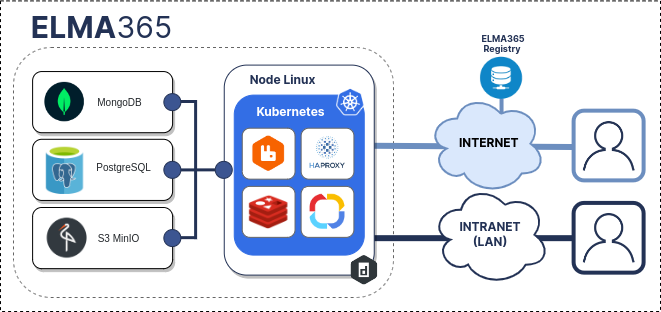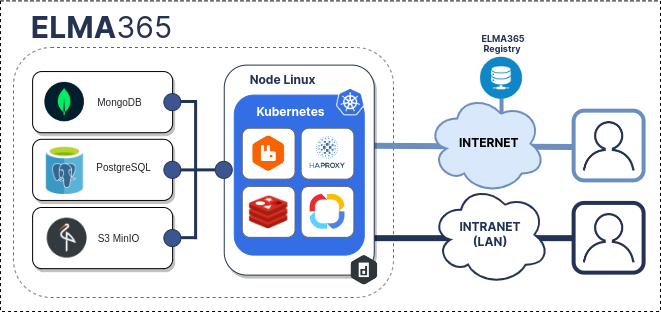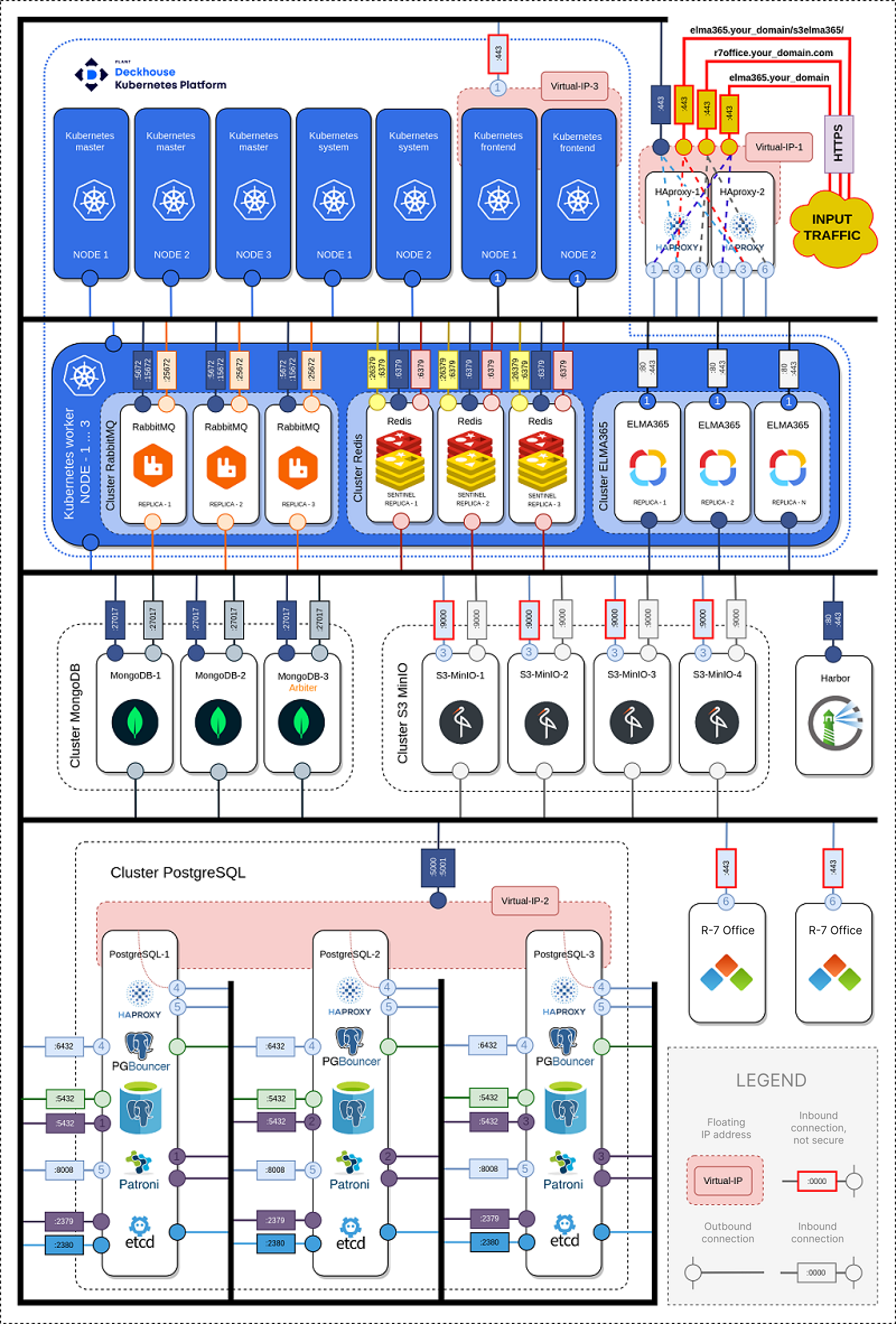The main options to install BRIX On-Premises Enterprise are:
- Development/test environment infrastructure.
- Production environment infrastructure.
- High availability production environment infrastructure.
For other commonly used BRIX On-Premises Enterprise installation options, see the Prepare BRIX On-Premises infrastructure article.
Development/test environment infrastructure
This infrastructure variant is suitable for development (DEV) and testing (TEST) environments and does not require high reliability of data storage components.

Characteristics:
- One physical server or virtual machine for all components.
- Installation with Internet access.
- Embedded data storage components.
For information on how to deploy this infrastructure option for BRIX Enterprise Kubernetes, read the following articles:
Production environment infrastructure
Option for organizing infrastructure for production environments (PROD).

Characteristics:
- One physical server or virtual machine for BRIX On‑Premises, proxying, and storage components.
- Three physical servers or virtual machines for external databases.
- Installation with Internet access.
- Embedded RabbitMQ and Redis data storage components.
- External MongoDB, PostgreSQL, and S3 MinIO data storage components.
- Embedded HAProxy proxy server for proxying incoming requests to external S3 storage.
Read more about how to install BRIX Enterprise in this option in the following articles:
- MongoDB.
- PostgreSQL.
- MinIO (S3).
- Kubernetes cluster.
- Prepare embedded databases (install RabbitMQ and Redis).
- S3 proxying in Kubernetes via S3-Gateway.
- Install BRIX Enterprise in Kubernetes.
High availability production environment infrastructure.
This infrastructure option is suitable for production environments (PROD) with high-reliability requirements for storage components.

Characteristics:
- 10 physical servers or virtual machines for the Kubernetes cluster that will host BRIX On‑Premises and data storage components.
- 10 physical servers or virtual machines for external databases.
- Two physical servers or virtual machines for balancing and proxying incoming requests to BRIX On‑Premises and S3 storage.
- Two physical servers or virtual machines for document service.
- One physical server or virtual machine for Kubernetes image storage.
- Installation without Internet access.
- Local Kubernetes image store.
- Embedded high availability RabbitMQ and Redis data storage components.
- External high availability MongoDB, PostgreSQL, and S3 MinIO data storage components.
- External high availability document server.
- External high availability HAProxy proxy server for proxying incoming requests to BRIX On‑Premises and S3 storage.
Read more about how to install the BRIX On‑Premises Enterprise high availability cluster and all necessary components in the following articles:
- Install Harbor.
- Download BRIX images.
- Download Deckhouse images.
- MongoDB cluster.
- PostgreSQL cluster.
- MinIO cluster.
- High-availability Kubernetes cluster.
- Prepare embedded databases (install RabbitMQ and Redis).
- High availability HAProxy.
- Install BRIX Enterprise in Kubernetes.
Found a typo? Select it and press Ctrl+Enter to send us feedback